Overview
Spend January Term exploring the ecological diversity of the Galápagos Islands, Ecuador, with AIFS! Study environmental science at the Universidad San Francisco de Quito (USFQ), a leader in education, research, creativity and entrepreneurship in Latin America.
What’s Included
The AIFS inclusive program fee includes all of the great features below in addition to many pre-departure, on-site and upon-return services to help students make the most of their time abroad.
Review Our Policies-
Tuition
3 semester credits
-
Courses
Course in environmental science
-
Housing
with local families on San Cristóbal Island. Hotel accommodation is provided for the Quito and Santa Cruz Island sections of the program
-
Meals
Breakfast and lunch in Quito, 3 meals a day on San Cristóbal and breakfast and lunch on Santa Cruz
-
Excursions & Day Trips
Quito, Ecuador (2 nights at the start of the program and 2 nights at the end) and Santa Cruz Island, Galápagos (2 nights)
-
Cultural & Social Activities
Guided tour of Quito’s historic center and the Middle of the World Monument or Otavalo Market, visits to Frigate Bird Hill, El Junco Lake, La Galapaguera, La Lobería Beach, snorkeling excursion to Kicker Rock, Puerto Chino and Isla Lobos
-
Welcome Event
To help you get to know your classmates better, familiarize you with the local area and advise you about your stay
-
On-Site Support
To help with any questions or advice you may need throughout the program
-
Health & Safety
24/7 emergency support and comprehensive insurance
-
Green Initiative
Additional Options & Opportunities
-
AIFS Flight Package
Round trip flights U.S.-Quito-U.S.
Round trip transfers between the airport and campus overseas
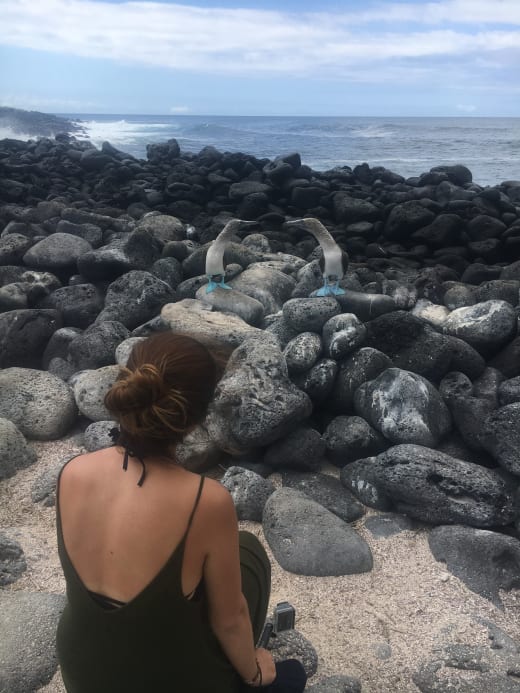
Living Abroad
Housing
Homestay
Students will stay with a carefully selected homestay family in San Cristóbal. By staying with local families, you will gain a unique insight into island life and how the locals live and work.
- Daily breakfast and dinner with the families
- Most lunches in town or at the site of the academic visits
Hotel
Hotel accommodation is provided in Quito and Santa Cruz Island with breakfast and lunch provided.
City Facts
Geography
San Cristóbal is the easternmost island in the Galápagos archipelago and has a population of about 6,000 inhabitants.
History
San Cristobal is where Darwin first set foot to write his famous book, “On the Origin of Species.”
Nature
San Cristóbal is home to many animals like sealions, marine iguanas, tortoises, and more!
Site Staff
AIFS in the Galápagos Islands Director, January Term Program
AIFS provides a dedicated Program Director for this program who will assist students throughout. Details and contact information will be available prior to the start of the program.
The Program Director provides academic advice, introduces you to the community and handles communication with the University.
Cultural Activities
Learning does not begin or end in the classroom. Visits and field trips are a key part of your academic study in the Galápagos, while social and cultural activities in Quito give you a better understanding of Ecuador, the South American country which governs the islands. Past activities have included:
- Welcome lunch
- Visit to El Junco, a permanent freshwater lake where you can see frigate birds bathing to preen their feathers
- La Lobería, a coral sand beach where you can see sea lions, a large colony of marine iguanas and birds
- La Galapaguera, a man-made breeding program for tortoises and an information center for visitors. You can see giant land tortoises living in a semi-natural habitat
- Kicker Rock, one of San Cristóbal Island’s most iconic sites and an excellent location for spotting manta rays, sea turtles and sharks
- Frigate Bird Hill to spot the magnificent frigate birds
- The Interpretation Center which focuses on the history of the archipelago from its volcanic origins to the present
- The Isla Lobos to see the nests of the blue-footed boobies
- Quito historic center and Middle of the World Monument guided tour or guided visit to Otavalo Market
- Farewell dinner
USFQ and AIFS promote conservation and sustainable tourism in the Galápagos Islands through education and research. All visits on the islands are to designated visitor sites.
Many activities involve snorkelling – participants should be able to swim and be confident in water.
Important Dates & Deadlines
Request InfoOpen
Dates & Deadlines
Details
-
Early Application Deadline*
-
Application DeadlineOctober 1, 2024
-
Deposit DeadlineOctober 15, 2024
-
Scholarship DeadlineOctober 1, 2024
-
Visa Deadline****
-
Optional Departure Flight from US***January 3, 2025
-
Program BeginsJanuary 3, 2025
-
Program EndsJanuary 16, 2025
-
Optional Return Flight to US***January 16, 2025
- *** Included for students on AIFS flight package.
- **** AIFS Abroad offers visa processing services to applicants who enroll into the program by this date. All other applicants who enroll after this date will be responsible for securing their own visa with guidance from AIFS Abroad.
Optional Flight Package
Students can select an optional transportation package for all AIFS programs. Students who choose to book their own flights should meet up with group at the program location and will need to make their own ground transportation arrangements.
Below are fees by departure city based on average historical costs and subject to change. If you select this option on your application, the total flight package price will be confirmed in your account 6 months prior to departure. (Program fee is guaranteed.)
Depature City
Fee
-
Atlanta$1,640
-
Boston$1,500
-
Buffalo$1,500
-
Charlotte$1,820
-
Chicago$1,580
-
Cincinnati$1,820
-
Columbus$1,740
-
Dallas$1,800
-
Denver$1,740
-
Des Moines$1,860
-
Detroit$1,780
-
Houston$1,640
-
Los Angeles$1,460
-
Miami$1,460
-
Minneapolis$1,840
-
New York$1,440
-
Newark$1,400
-
Orlando$1,520
-
Philadelphia$1,580
-
Phoenix$1,860
-
Pittsburgh$1,640
-
Raleigh/Durham$1,860
-
San Francisco$1,500
-
Seattle$2,040
-
St. Louis$1,860
-
Washington/Dulles$1,460
- View more
See what others are saying
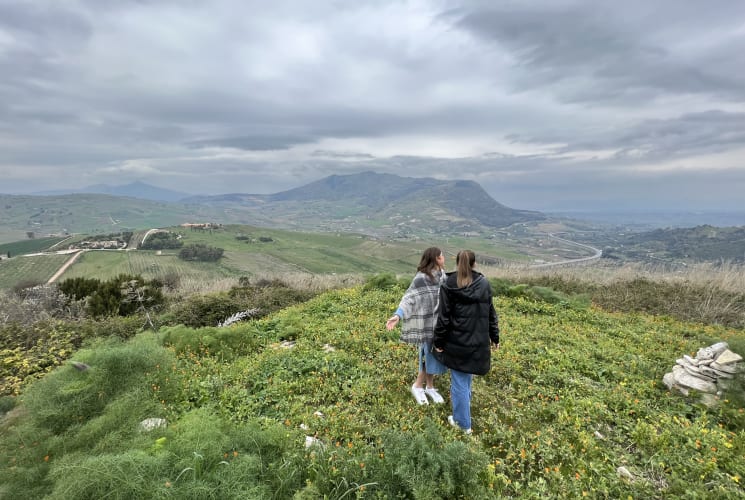
Ready to Study Abroad in Galápagos Islands?
For more dates or questions, contact your program consultant:
(203) 399-5163 or email: aifsabroad@aifs.com
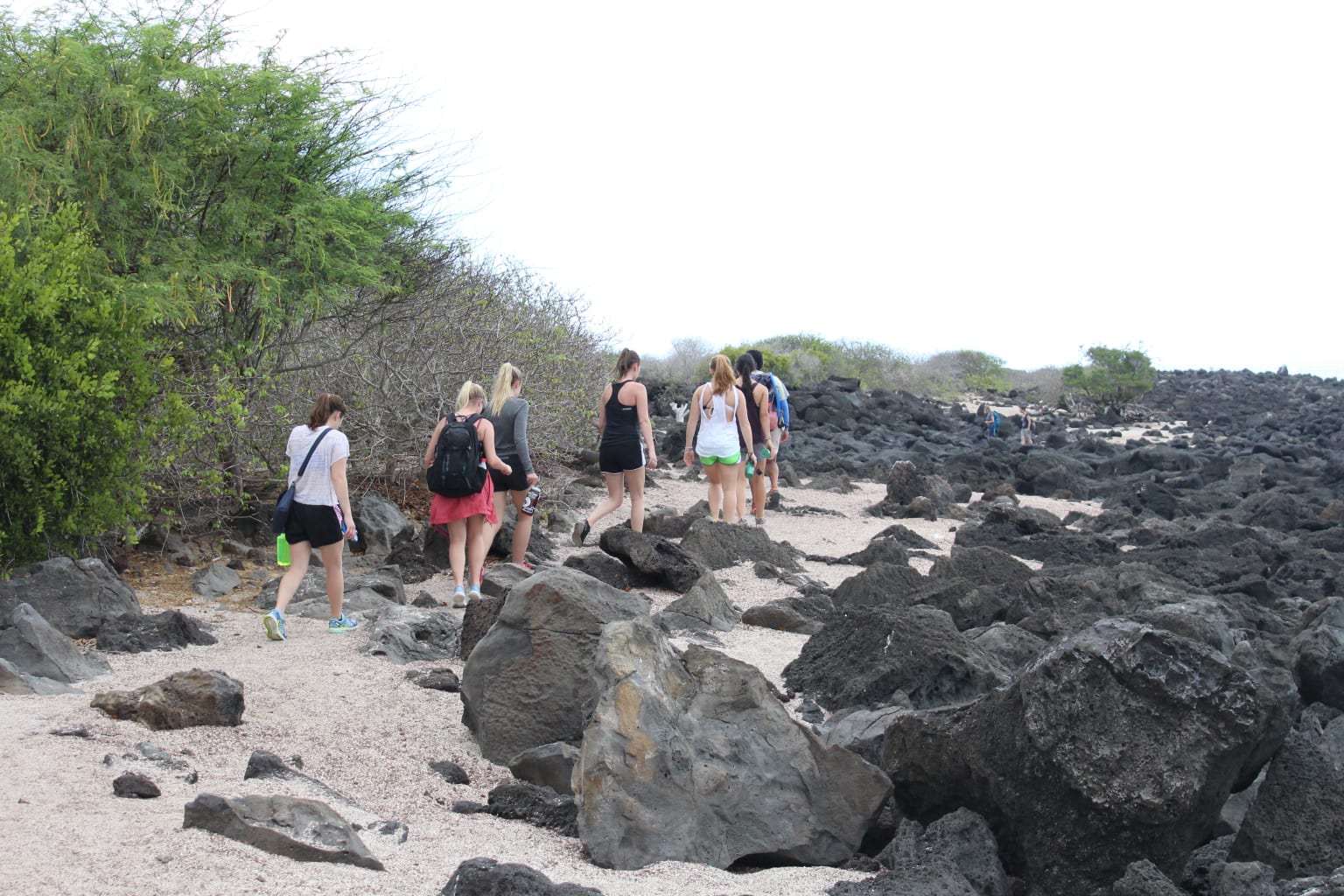
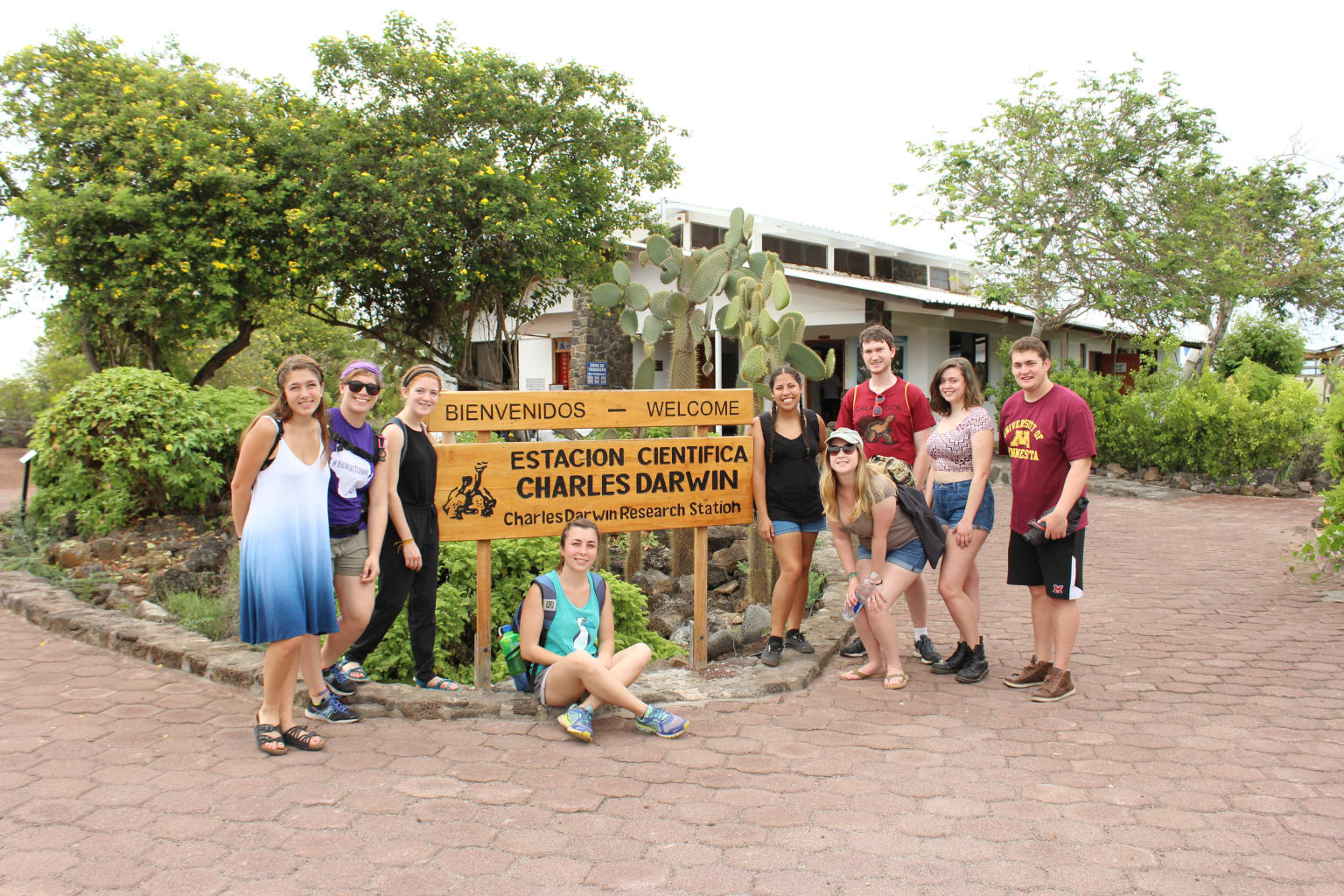
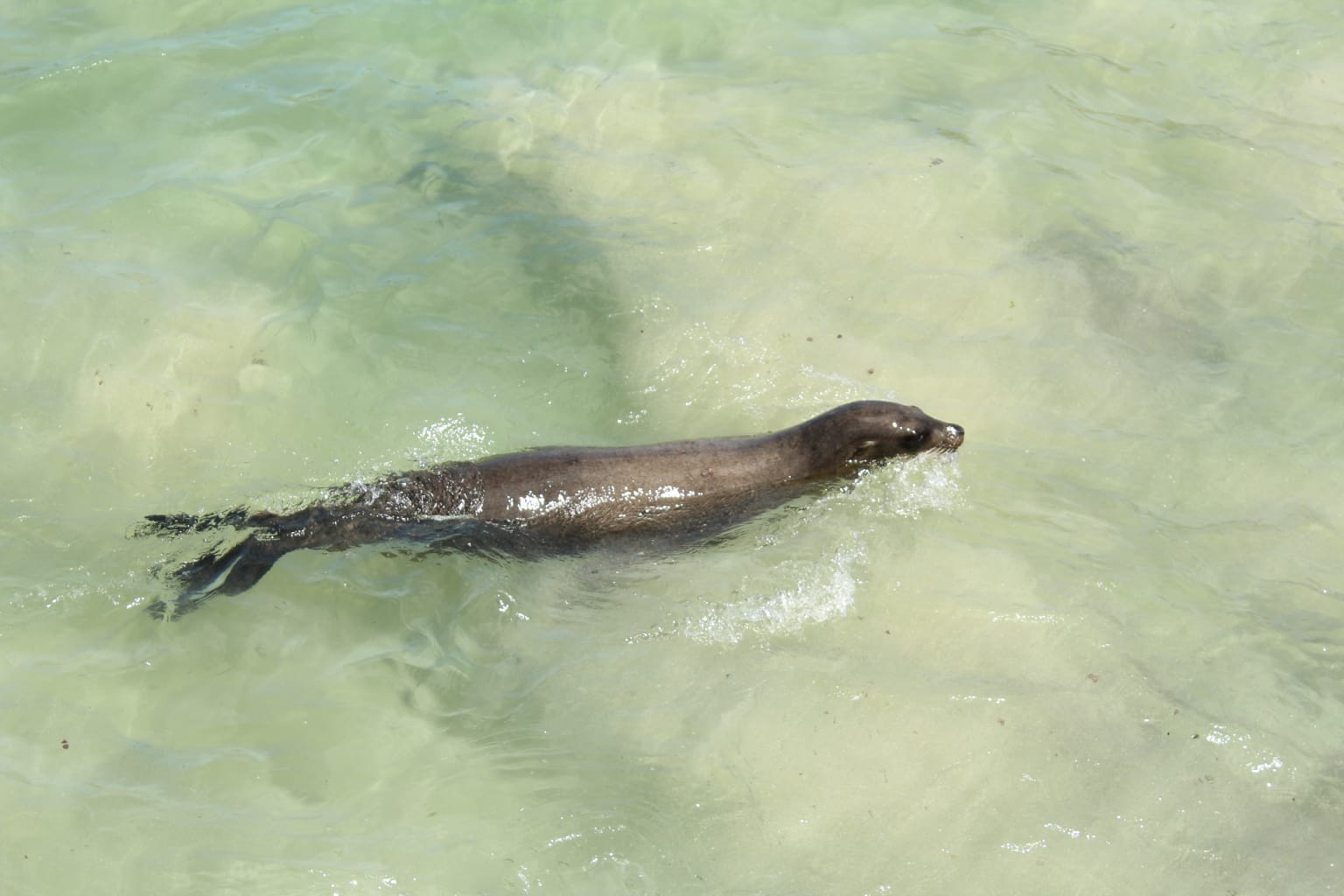
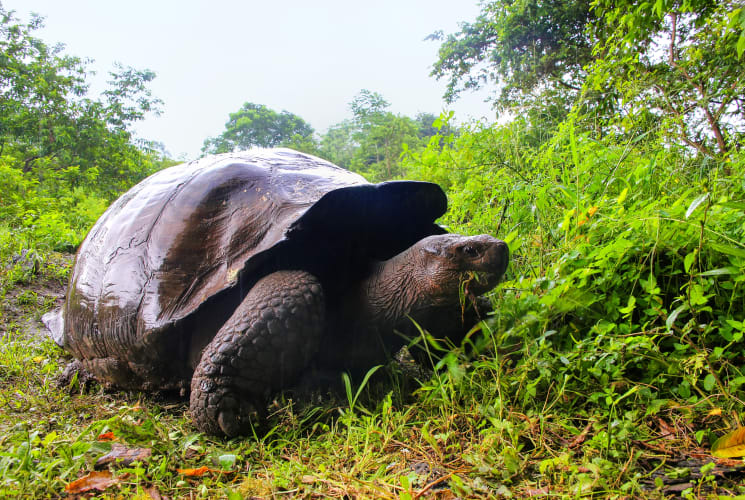
Social identity & access
One of the best things you can do before departure is enter into the journey knowing that your time abroad will be unique to this experience. The resources, community, and support available to you when abroad will likely be different as well. In order to help you prepare for your experience, we have compiled many resources about social identity and access in specific locations abroad. Your program staff will also provide you with more details pre-departure and during orientation.
Learn more